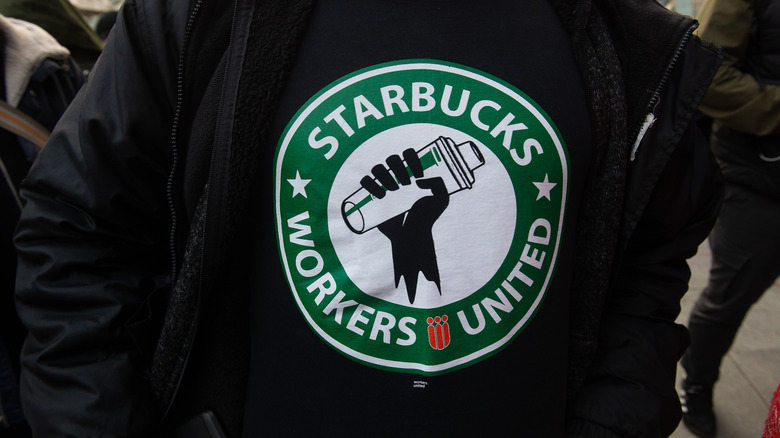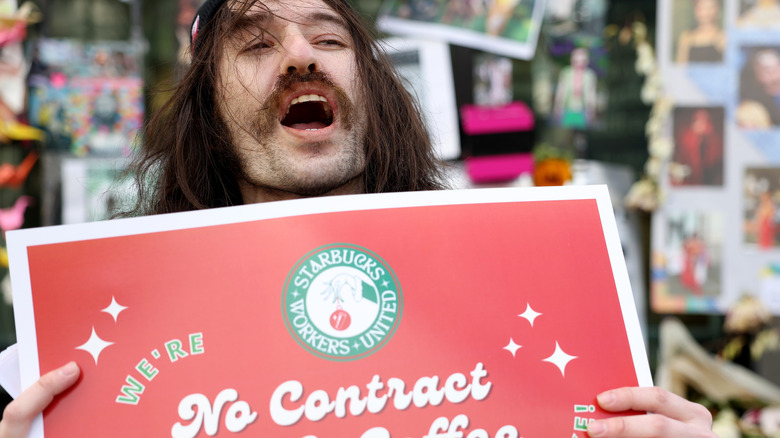The Starbucks Union's Demands Have Been Made. Here's What They Want
Ahead of a Starbucks shareholders' meeting, groups chanted "no contract, no coffee," as Crosscut reported. While many people would be distraught without their morning sip of a double shot, extra foam cinnamon dolce latte, the barista making that beverage might have working concerns on their mind. As union Starbucks baristas presented their newest terms to Starbucks' lawyers, the demands seem to be in line with a growing trend across organized labor.
The union's listed demands were a $20 nationwide starting wage, full-time employees guaranteed a 37-hour work week, 100% employer-covered healthcare for both full and part-time employees, and an all-location credit card tipping option. In the summer of 2022, the company's average hourly wage was increased to $17. While the Starbucks lawyers left the bargaining table without addressing any of the demands, the negotiations have been and will continue to be ongoing. Given that talks have been happening for well over a year, no one expected a quick concession to the union's requests.
When new CEO Laxman Narasimhan took over this week, his public letter addressed employees' working concerns generally. Although he admitted that partner experience might be limiting the brand, the broad-based comments did not tip the company's hand to any concessions. When or if the Starbucks union's demands will be met, rejected, or come to a compromise is an unanswered question, but it does appear that change could be brewing.
Could the Starbucks union's demands cause a ripple effect across union efforts?
As the Starbucks union presented the company with new salary, work hour, and health care demands, the potential impact throughout the business world could be massive. While the coffee giant might get more attention, a Crosscut investigation reports this movement is happening across sectors, including Amazon, Microsoft, and REI. The fight against profits over a living wage is not necessarily a new concept. But while the cost-benefit analysis of union versus non-union status will continually be debated, it is a lengthy, collective first contract bargaining experience, which can last well over a year.
While the Starbucks negotiations are ongoing, Disney World just reached an agreement with its union to raise wages to $18 an hour with additional increases over a five-year period. As CNN discussed last year, the success or failure of the Starbucks union's negotiation will have a broader impact across a variety of businesses. If or when there is a successful contract in place, other union efforts could feel a momentum shift. Still, even though unions are seeing a surge in popularity, companies still have the bargaining advantage. For now, demands have been made, negotiations may happen, and change could be on the horizon.

